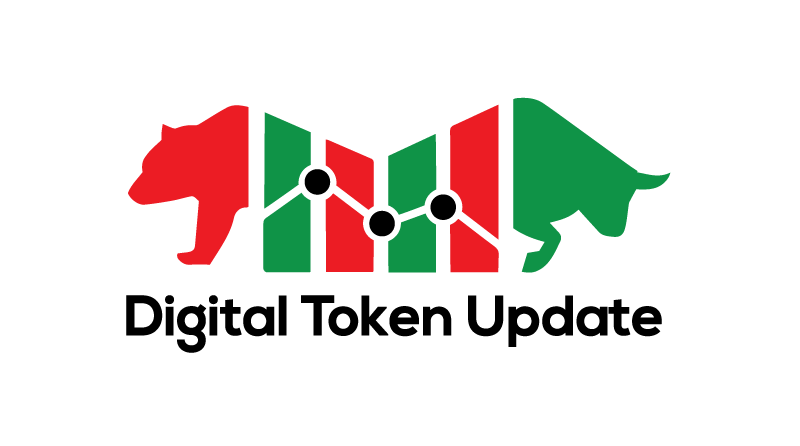9 Common interview questions for AI jobs

AI job seekers should be prepared to answer common interview questions on their experience, skills and approach to AI-focused projects.
Artificial intelligence (AI) is a rapidly growing field, and as a result, the job market for AI professionals is expanding. AI job interviews can be particularly challenging because of the technical nature of the field. However, technical expertise is not the only factor that interviewers consider. Non-technical candidates who can demonstrate an understanding of AI concepts and an eagerness to learn are also valued.
Technical candidates should be prepared to answer questions that test their knowledge of machine learning algorithms, tools and frameworks. They may be asked to provide detailed explanations of their past projects and the technical solutions they used to overcome challenges. Additionally, they should be prepared to answer questions about data preprocessing, model evaluation and their experience with AI-related tools and frameworks.
Related: 5 natural language processing (NLP) libraries to use
Non-technical candidates should focus on their understanding of the transformative potential of AI and their eagerness to learn more about the field. They should be able to explain the importance of data preprocessing and cleaning and provide an understanding of how machine learning algorithms work. Additionally, they should be prepared to discuss their ability to collaborate and communicate with team members and their methods of staying up-to-date with the latest developments in AI.
Here are nine common interview questions for AI jobs. While these are common interview questions for AI jobs, it’s important to keep in mind that every job and company is unique. The best answers to these questions will depend on the specific context of the role and the organization you are applying to.
Use these questions as a starting point for your interview preparation, but don’t be afraid to tailor your responses to fit the specific job requirements and culture of the company you are interviewing with. Remember that the goal of the interview is to demonstrate your skills and experience, as well as your ability to think critically and creatively, so be prepared to provide thoughtful and nuanced responses to each question.
1. What motivated you to pursue a career in AI?
This question is aimed at understanding a job seeker’s motivation and interest in pursuing a career in AI. It is an opportunity to showcase one’s passion and how it aligns with the job they are applying for. A candidate’s answer should highlight any experience or training they may have had that sparked their interest in AI, as well as any specific skills or interests they have in the field.
Recipe to getting a job in data science in 6 months
– Learn Python & SQL
– Brush up on stats & linear algebra
– Implement key ML algorithms using Kaggle data in notebooks
– Use real-world data, build machine learning models
– Practice interview questionsGet job 🙂
— Bindu Reddy (@bindureddy) March 3, 2021
Technical candidates can highlight their interest in the mathematical and statistical foundations of machine learning, while non-technical candidates can focus on the transformative potential of AI and their desire to learn more about the field.
2. What experience do you have with AI-related tools and frameworks?
This question is aimed at assessing a candidate’s technical knowledge and experience with AI-related tools and frameworks. Their answer should highlight any experience they have had working with specific tools and frameworks, such as TensorFlow, PyTorch or scikit-learn.
Wanna break into ML? Master these essential ML and DL Python libraries.
Which ones to choose for your specific use case? Depends ⬇️
ML: NumPy/Scipy, Pandas, SkLearn
DL: PyTorch, TensorFlow/Kerashttps://t.co/v0MvCEcrKj #MachineLearning #pythonprogramming #DeepLearning pic.twitter.com/VJS5F4lt7l— Parmida Beigi (@ParmidaBeigi) April 19, 2023
Technical candidates can provide specific examples of tools and frameworks they have worked with, while non-technical candidates can highlight their willingness to learn and adapt to new technologies.
3. Can you describe a machine learning project you worked on?
This question is designed to assess the candidate’s experience and understanding of machine learning projects. The interviewer is interested in hearing about a machine learning project that the candidate has worked on in the past. The candidate’s response should be structured to describe the project from start to finish, including the problem that was being solved, the data used, the approach taken, the models developed and the results achieved.
The candidate should use technical terms and concepts in their answer but also explain them in a way that is easy to understand for non-technical interviewers. The interviewer wants to gauge the candidate’s level of understanding and experience with machine learning projects, so the candidate should be prepared to provide details and answer follow-up questions if necessary.
Technical candidates can provide a detailed explanation of the project, including the algorithms and techniques used, while non-technical candidates can focus on the project’s goals and outcomes and their role in the project.
4. How do you approach data preprocessing and cleaning?
This question aims to assess the candidate’s approach to data preprocessing and cleaning in machine learning projects. The interviewer wants to know how the candidate identifies and addresses issues in data quality, completeness and consistency before feeding the data into machine learning models.
The answer should describe the steps taken to ensure that the data is properly formatted, standardized and free of errors or missing values. The candidate should also explain any specific techniques or tools used to preprocess and clean the data, such as scaling, normalization or imputation methods. It is important to emphasize the importance of data preprocessing and cleaning in achieving accurate and reliable machine learning results.
Day10: #100DaysOfCode: Data Preprocessing Techniques
Why is Data Preprocessing Required?
Data preprocessing is required tasks for cleaning the data and making it suitable for a machine learning model which also increases the accuracy and efficiency of a machine learning model. pic.twitter.com/ilEci6PaVz— Tarun Jain (@TRJ_0751) May 3, 2022
Technical candidates can provide a step-by-step explanation of their data preprocessing and cleaning techniques, while non-technical candidates can explain their understanding of the importance of data preprocessing and cleaning.
5. How do you evaluate the performance of a machine learning model?
The purpose of this question is to evaluate your knowledge of machine learning model evaluation techniques. The interviewer wants to know how to assess the performance of a machine learning model. One can explain that various evaluation metrics, such as accuracy, precision, recall, F1-score and AUC-ROC, among others, are available. Each of these metrics has its own significance based on the problem at hand.

One can mention that to evaluate the performance of the model, the data is typically split into training and testing sets, and the testing set is used for evaluation. Additionally, cross-validation can be used for model evaluation. Finally, one should consider the problem context and specific requirements while evaluating the model’s performance.

Technical candidates can provide a detailed explanation of the metrics and techniques used to evaluate the performance of a model, while non-technical candidates can focus on their understanding of the importance of model evaluation.
Related: 5 programming languages to learn for AI development
6. Can you explain the difference between supervised and unsupervised learning?
The interviewer aims to gauge how well you comprehend the core ideas of machine learning through this question. The interviewer wants you to explain the difference between supervised and unsupervised learning.
You can explain that supervised learning is commonly used for tasks like classification and regression, while unsupervised learning is used for tasks like clustering and anomaly detection. It’s important to note that there are other types of learning as well, such as semi-supervised learning and reinforcement learning, which combine elements of both supervised and unsupervised learning.
Technical candidates can provide a technical explanation of the differences between the two learning types, while non-technical candidates can provide a simplified explanation of the concepts.
7. How do you keep up with the latest developments in AI?
This question is aimed at understanding your approach to staying up-to-date with the latest developments in the field of AI. Both technical and non-technical candidates can explain that they regularly read research papers, attend conferences and follow industry leaders and researchers on social media.
Additionally, you can mention that you participate in online communities and forums related to AI, where they can learn from others and discuss the latest developments in the field. Overall, it’s important to show that you have a genuine interest in the field and are proactive in keeping up with the latest trends and advancements.
8. Can you describe a time when you faced a difficult technical challenge and how you overcame it?
This question is aimed at understanding the problem-solving skills of the job seeker. The interviewer wants the candidate to describe a time when they faced a challenging technical problem and how they tackled it. The candidate should provide a detailed description of the problem, the approach they took to solve it and the outcome.
It is important to highlight the steps taken to resolve the issue and any technical skills or knowledge utilized in the process. The candidate can also mention any resources or colleagues they reached out to for assistance. The purpose of this question is to evaluate the candidate’s ability to think critically, troubleshoot and persevere through difficult technical challenges.
Technical candidates can provide a detailed explanation of the challenge and the technical solutions used to overcome it, while non-technical candidates can focus on their problem-solving skills and ability to learn and adapt to new challenges.
9. How do you approach collaboration and communication with team members in an AI project?
This question aims to assess the candidate’s ability to work collaboratively with team members in an AI project. The interviewer wants to know how the candidate approaches collaboration and communication in such a project. The candidate can explain that they prioritize effective communication and collaboration by regularly checking in with team members, scheduling meetings to discuss progress and maintaining clear documentation of project goals, timelines and responsibilities.
The candidate can mention that they also strive to maintain a positive and respectful team dynamic by actively listening to and valuing the perspectives of their team members and providing constructive feedback when needed. Finally, the candidate can explain that they understand the importance of establishing and adhering to a shared code of conduct or best practices for collaboration and communication to ensure the success of the project.
Both technical and non-technical candidates can explain their methods of communicating and collaborating with team members, such as providing regular updates, seeking feedback and input, and being open to new ideas and perspectives.

